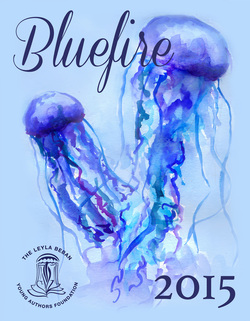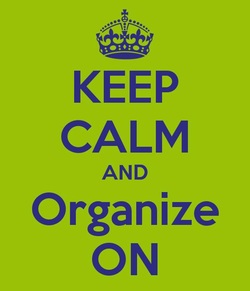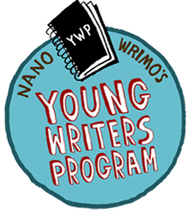Happy New Year!






Happy New Year! A new year often brings new resolutions. I thought about what advice I could give on this topic, and since many of my resolutions are repeats from last year, I decided I'm not a qualified expert on this. What I can do, however, is provide you with 5 interesting links to start off 2016.  If you want to achieve more (who doesn't?), here's some inspirational and practical advice from James Clear: The Only Productivity Tip You'll Ever Need.  If your goal is organize, check out this list for some innovative ideas: 52 Meticulous Organizing Tips To Rein In The Chaos.  If you're a writer, you might be interested in Jane Friedman's 5 Industry Issues to Watch in 2016 and Betsy Bird's SLJ article, What’s Trending? What Is, What Was, What’s Soon to Be in Kid Lit.  Also for writers: Heather Ayris Burnell has compiled a lengthy list of contests you can enter on the Sub It Club blog.  Lastly, if you use Twitter, check out their plans to expand from 140-characters in this Wall St. Journal article. (Say it isn't so, Twitter!) Do you have resolutions for the upcoming year? Or maybe anti-resolutions? Share your own favorite related links or advice in the comments.
Writing Contest for StudentsHappy New Year! Teen Tuesday is back this week, but the featured contest deadline is coming up fast. Can you write a story of exactly 1000 words over the next few weeks? If so, check the contest details below.  What: 1000-word story contest with $1000 prize. Your short fiction must be *exactly* 1000 words. Who: Students in grades 6-12 When: Now through February 1, 2016 Prizes: According to the website, "two $1,000 scholarship prizes will be awarded, one for grades 6-8 and one for grades 9-12. Seven $100 cash prizes will also be awarded for winning entries, one per grade level. Stories selected for publication into Bluefire, but not selected as a grade-level or scholarship winner, will receive a $50 cash prize.... The author retains all copyrights to the submitted work." Details: Visit the Bluefire contest page for complete information. Teachers: Visit the educators' page join the teacher mailing list, see excerpts from past contests, and get a copy of their creative writing curriculum. Some good news! My next young adult novel, coming out in Fall 2016 from Sky Pony Press, has a new title: BLACK FLOWERS, WHITE LIES. If you'd like to keep up with this kind of information, please consider subscribing to my newsletter. And now, on to the Friday Five: Five Tips for Staying Organized While Marketing a Book Promoting a new novel can be a whirlwind of activity. Here are five ideas for staying organized during the madness that is book marketing. 1. Publicity opportunities require the same information over and over again, so create a Word file with all of your frequently used links: your website, social media links, and book sale sites. Keep a version of your bio in the file, too, so you can easily cut and paste. I keep the file in the same folder as a copy of my book cover jpg and my author photo, that way the info is simple to access. 2. Keep track of interviews you’ve done. You can print them in a folder or bookmark them online, or even create a list of links on your website “media” page. But at some point when you’ve done quite a few, it’s helpful to have a way to remember who you’ve spoken to and what you’ve said. You can also consider making a table. Here’s a sample from mine: 3. Create an event “go” bag and keep it stocked with supplies for library panels, book festivals, etc. Include a display copy of your book, bookplates, favorite signing pens, bookmarks, and business cards. Consider bringing an envelope of small bills if you ever handle your own sales and need to make change. I also have a laminated “author signing today” poster of Pandemic’s book cover, an inexpensive washable white tablecloth, scissors, and tape in my bag. (If you drive to an event that will provide copies of your book, it’s still a good idea to bring extra books with you just in case. I’ve been to many events where there were “glitches” with getting an author’s books in stock.) 4. Sometimes a book festival (or other event) is just too far or maybe the date doesn’t work. Time passes and when people start buzzing about said event on social media, I may forget why I chose not to participate. To avoid these lapses in memory, I developed the “Not Doing” folder where I keep information on events I’ve decided to forego with a note about why. 5. Besides your regular to do list, keep a Kindness list. I jot down all the nice, helpful, kind things people have done for me during the process of launching and marketing Pandemic. An acquaintance writes a glowing review, an old friend travels to my book launch, another writer lets me know about an upcoming festival. During a process where so much is out of my control, keeping a kindness list helps me focus on the positive. Please share any of your own writing/marketing organizational tips in the comments. This will be my last post for 2015, but I look forward to more blogging in the new year.
For this week's Friday Five, I'm sharing a few of my favorite photos from the year: And of course 2015 wouldn't be complete without pictures of my beloved Luna and Rocky! Do you have a good way to organize photos? That's something I struggle with. Let me know in the comments.
 Need help revising your manuscript? Here are some tips from a revision workshop I gave at SCBWI NJ last year. Having critique partners is an invaluable part of the novel writing process. To get the most mileage out of a critique, you should fix the more obvious problems yourself before passing the manuscript to other readers. Here are some questions to consider.
After you make any “big picture” changes, you can focus on the finer wording details.
For more self-editing information online, check out Common Manuscript Mistakes and the Writers Who Make Them and Six Easy Tips for Self-Editing Your Fiction.
For more extensive editing advice, I have some recommended books. Share your own favorite books in the comments. Productivity is an interesting concept, especially for creative people, because our “work” for each day isn’t always clearly defined. Without specific deadlines, we can sit around waiting for the muse instead of plowing ahead. Consistent progress can sometimes be a struggle. Here are a few thoughts on staying motivated, after you've recovered from Thanksgiving: 1. If you don’t have an external deadline, create one. For example, pick a date to exchange manuscripts with a critique partner or promise to have the story ready for beta readers by a certain time. Making a commitment that involves other people can work wonders for motivation. 2. Create a chain, as Jerry Seinfeld once advised a new comedian. Using a calendar, make a large X each day you complete a certain task. Soon the line of Xs becomes self-perpetuating because you don’t want to break the streak. (FYI -- gold stars work, too!) James Clear says on Entrepreneur.com, “The Seinfeld Strategy works because it helps to take the focus off of each individual performance and puts the emphasis on the process instead. It's not about how you feel, how inspired you are, or how brilliant your work is that day. Instead, it's just about ‘not breaking the chain.’” If you are looking for online support, the Monthly Twitter Writing Challenge encourages participant to write or revise daily for the month and document it on the group spreadsheet, mixing the “Seinfeld Strategy” with public commitment--a winning combination! The same can be said for NaNoWriMo. 3. Make a plan that divides “writing a novel” (a huge, scary project) into manageable pieces. Set goals to write the first chapter, decide character names, write the second chapter, research the setting, etc. If you want to finish a novel in a certain time period, approximately how many words do you need to write a month? Make a schedule. It can always be adjusted, of course, but, as Antoine de Saint-Exupéry said, “A goal without a plan is just a wish.” I usually blog with a "five" theme on Friday, but the holiday weekend merits a shorter post. If you want to read more of my thoughts about this topic, you can read a collection of my productivity posts from A to Z. If you have any favorite tips or resources, please share!
 Literary Agent Liza Fleissig Literary Agent Liza Fleissig For today’s Friday Five, I’m featuring an interview with literary agent Liza Fleissig, founder of the Liza Royce Agency (LRA). I signed with Liza as my agent earlier this year and was thrilled when she sold my next novel, Black Flowers, White Lies (coming Fall of 2016!) to Sky Pony Press. Read on to learn about submitting your manuscript to LRA, Liza's ideal client, and her thoughts on trilogies. Q & A with Liza Fleissig1. What are some of the most important qualities you look for in novel submissions?Other than the obvious--strong writing and compelling voice--I like stories that are fresh and take chances. Once any given book becomes a hit, it is inevitable that we get submissions that basically jump on the bandwagon and offer a variation on the same best-selling theme. What some authors don’t realize is that publishers are no longer looking for THAT book, they are looking for the NEXT big thing. It is very frustrating because you look forward to great submissions and at times you are just left rolling your eyes and declining to consider. 2. What’s your favorite part about being an agent? Least favorite part? My favorite part? Being able to help our clients attain success, and in many cases life-long dreams, is an amazing feeling. I will never forget LRA’s first picture book signing--there was a full display in the store front window--and the look on the author’s face when she got out of the cab was priceless. My least favorite? Sigh. This business is not for the faint of heart. More and more often books are not passing acquisition meetings even with full editorial support. So when a deal is expected to be a fait accompli, but somehow still falls through, the blow is crushing--and being the one to deliver that news is almost as devastating as it is to hear it. 3. How would you describe your ideal client?One who shoots for the stars and looks for a window when the door is closed, but who can also be practical when need be. The agency relationship is like a marriage, with ups and downs, and the ideal client is one who can handle disappointment with grace, even when it’s unfair. Comparing yourself to other authors is a huge no-no, and knowing how to accept and appreciate constructive feedback is a must. We look for clients who say “what can I do for me?” not just “what can the publisher do for me?” and since LRA is run like a family, our ideal clients cross-support and share in their agency siblings’ successes. Determination helps too. We’ve sold books right out of the gate, and others in months, one took a year!--you never know--so be in it for the long haul and believe in yourself. Above all--HONESTY, TRUST and mutual RESPECT is key. Prima dons/donnas need not apply. 4. What do you see as the biggest changes in YA publishing in the past few years? I think YA continues to morph since its formal inception. When I grew up, there was no real YA section--books like FOREVER were considered risky, and now characters have sex with vampires. Talk about change! I think the main thing I would caution authors is that contrary to popular belief, trilogies is not the way to go. Post HUNGER GAMES everyone thinks they need to write trilogies, so they write with arcs that lend themselves to that, and I think it’s a critical error. First of all, as the numbers demonstrate, few books will break out in such a tremendous way. That is not to say they won’t have huge successes, just not necessarily in such a franchising way. Second, and more important to consider, the YA audience continues to grow up. As your readers hit college and adult years, they no longer read YA books. And, as new readers come of age, they don’t want to pick up a book mid-series. So I think it’s really important you write a GOOD YA STORY and worry only about THAT one. Trying to develop a trilogy often leaves the first book falling short, which makes a sale less likely in the first place. One book at a time. Very important in YA. 5. Are you currently open to submissions? How should an interested writer submit to you? I am always open to submissions, albeit sometimes my turn around is slower than others. Guidelines will be up on our website (launching hopefully by Jan!), but until then, people should send us an email WITH NO ATTACHMENTS since they will not be opened, providing a pitch, a brief bio, along with information about any social/marketing platform they feel is relevant. Unfortunately since we are so slammed, if someone doesn’t hear back from us within two weeks, then that means we declined to consider the work, for a variety of reasons, ranging from we might have something similar on our list to it just didn’t resonate. This business is so subjective, so please remember that a pass from us could very well be a YES from another agency! Thank you, Liza, for the helpful information. Follow the Liza Royce Agency on Twitter @lizaroyceagency and like them on Facebook at Liza Royce Agency for more deal and industry news.
For this week's Teen Tuesday, here are five online communities for teen writers. These can be a place to virtually meet other authors, learn about the craft, and share pieces of your work.  Figment is a "community to share writing, connect with other readers, and discover new stories and authors.” You can join an online group (or create your own) based around a topic you love. Produced by Random House, the Figment website also includes chats with authors, discussion forums, quizzes and writing contests.  Go Teen Writers "exists to provide encouragement, instruction, and community for teen writers.” Run by Stephanie Morrill and Jill Williamson, it also features a private facebook page and resources about writing, such as How to Write a Novel. Jill says, “We provide a consistent environment where teens can learn and ask questions. We post consistently, hold a variety of contests, and have guest bloggers who are professional authors, editors, or literary agents. We also provide a community for teens to meet other writers and form support and critique groups.” For more info and advice, read my interview with Stephanie and Jill.  As I mentioned in a previous blog post, NaNoWriMo has a modified program for "young" writers (classified as 17 and younger.) Even if you're not participating, the website includes free access to downloadable workbooks (elementary, middle, or high school), pep talks for motivation and encouragement, and other resources.  Teen Ink features poetry (including song lyrics, sonnets and haikus), fiction, book reviews (including a review of Pandemic), hot topics in nonfiction, and art/photos from students ages 13-19. The site also provides two forums for teens--a regular one for chatting and a writers' workshop for sharing creative work. When I'm not writing, I like to read. What have you read lately that you absolutely loved?
This week's Friday Five is a guest post from Beth Revis, author of the Across the Universe trilogy, as well as The Body Electric, Paper Hearts, and A World Without You (due out next summer). I often follow advice from other writers, and I love Beth's five bits of wisdom. Five Bits of Advice for Writers by an Author Ready to Stab Her Book |
JOIN NOW!
Sign up for Yvonne's newsletter for exclusive content, book news, and other occasional author goodies. Archives
March 2025
Categories
All
|